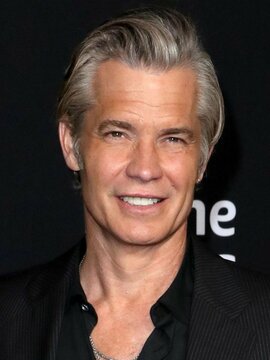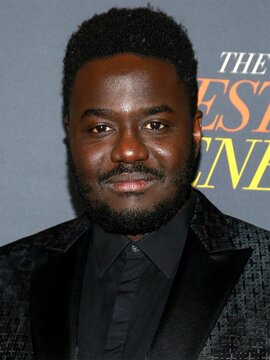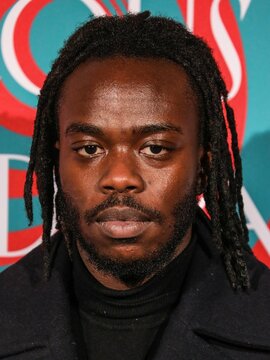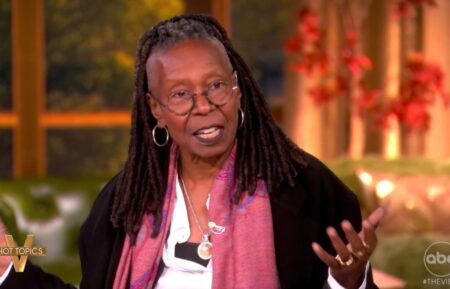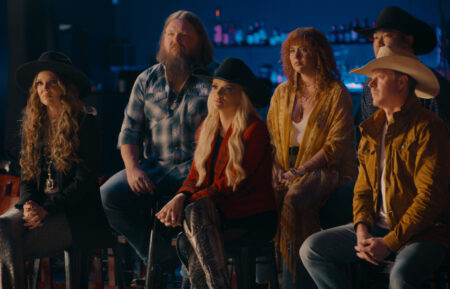‘Alien: Earth’ Creator Noah Hawley Breaks Down Morrow’s Mission & ‘Alien’ Parallels in Episode 5
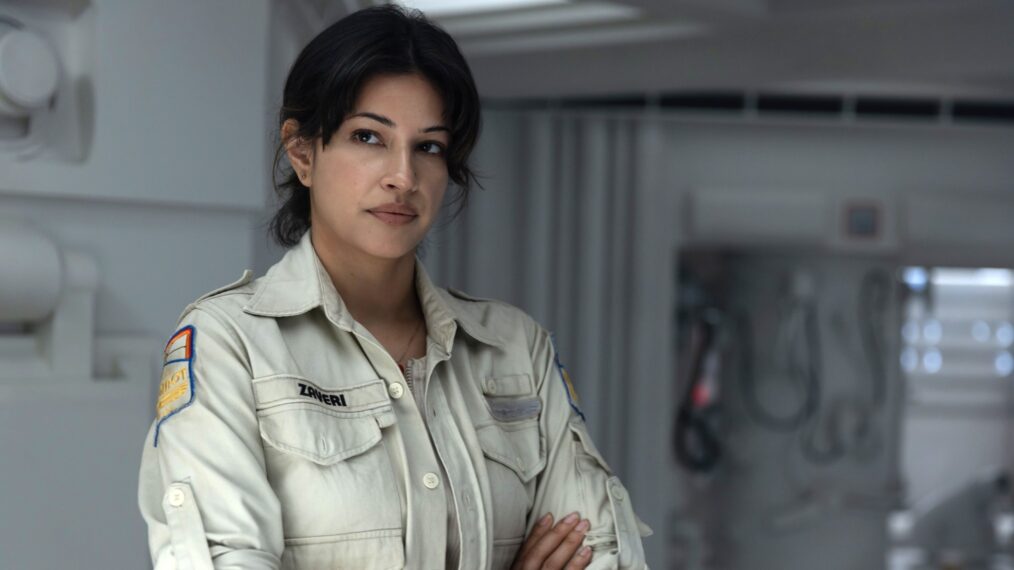
Spoiler Alert
[Warning: The below contains MAJOR spoilers for Alien: Earth, Season 1 Episode 5, “In Space, No One…”]
Alien: Earth took us back in time (and into space) mere days before the USCSS Maginot’s intended arrival date on the planet in the show’s riveting fifth installment, “In Space, No One…” which pays homage, not just in title, to Ridley Scott‘s 1979 film that started it all.
Written and directed by series creator Noah Hawley, Alien: Earth‘s latest episode tracks the events that led to the crash-landing of the USCSS Magino, as seen in the premiere episode, through Morrow’s (Babou Ceesay) eyes. As a security officer, the cyborg is alerted to a death aboard the ship caused by a breach in the containment of the species they’re transporting.
But as the events play out, Morrow realizes that sabotage is at play, and he begins to look at everyone suspiciously, including interim captain Zaveri (Richa Moorjani), who steps up after the ship’s captain dies. Still, the cyborg maintains his control and calm, even eliciting a curious comment from crewmate Rahim (Amir Boutros), who wonders how the cyborg doesn’t break a sweat despite the stress.
Realizing that navigation has also been lost, meaning the only potential outcome is a crash-landing, Morrow seeks answers and discovers a crew member has been tasked by Prodigy, Boy Kavalier’s (Samuel Blenkin) corp, to commandeer the ship and cargo. In other words, the seemingly random crash-landing had been orchestrated all along by the barefoot billionaire.
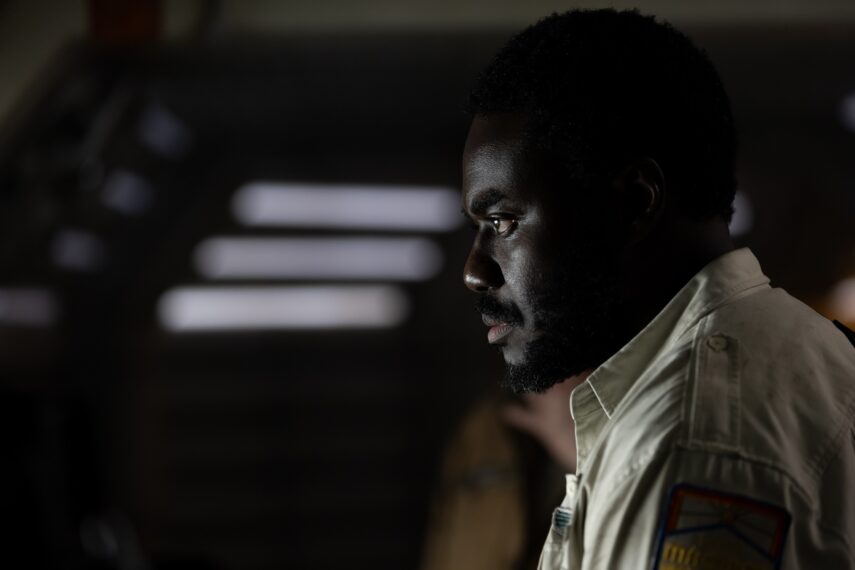
Patrick Brown / FX
And as Morrow roots out the sabatour, the creatures aboard are running amok, reducing the crew count drastically. When Morrow devises a plan to meet at the bridge, he decides that to preserve the cargo and deliver it to Weyland-Yutani, only he is needed to survive, and so he welds the door shut, leaving Zaveri to be massacred by the Xenomorph.
As he works to square away his tasks before closing himself in the emergency landing space, the calm and cool Morrow finally breaks a sweat. Is it due to the pressure of a 65-year-long mission during which he tragically lost his daughter? Hawley answers that question and many more, including which new species should scare viewers the most, in the Q&A below.
This episode pays homage to the story told in 1979’s Alien, but this time around, Morrow is at the center of it all. What made you want to reimagine this story, and what is driving Morrow to complete this mission?
Noah Hawley: I love the reversals for an audience in whom you’re rooting for, and who you’re rooting against. And I think those are some of the most meaningful moments as a viewer because it really is an active process that you go through. I remember in Season 2 of Fargo, Jesse Plemons and Kirsten Dunst, and they’re up against this Gerhardt family, and you think, “Well, I don’t care who they send, I’m rooting for Jesse and Kirsten.” And then they send the kid with cerebral palsy who wants to prove he’s a man. And the audience goes, “Well, hold on. I don’t want anything bad to happen to him.”
I think we’re trained to root for violence as a solution to a problem, and I always want the audience to have to wrestle with it a little bit and to look and to go, well, look at Morrow’s side of it. I mean, he has this mission he’s been tasked with, and he lost his ship. It was boarded, and they’ve stolen from him, and he’s the protagonist in his story, and his ethics are not our ethics, necessarily, but he’s not wrong on some level. When he says to Slightly, “If you took something from me, how is it wrong for me to take it back?”
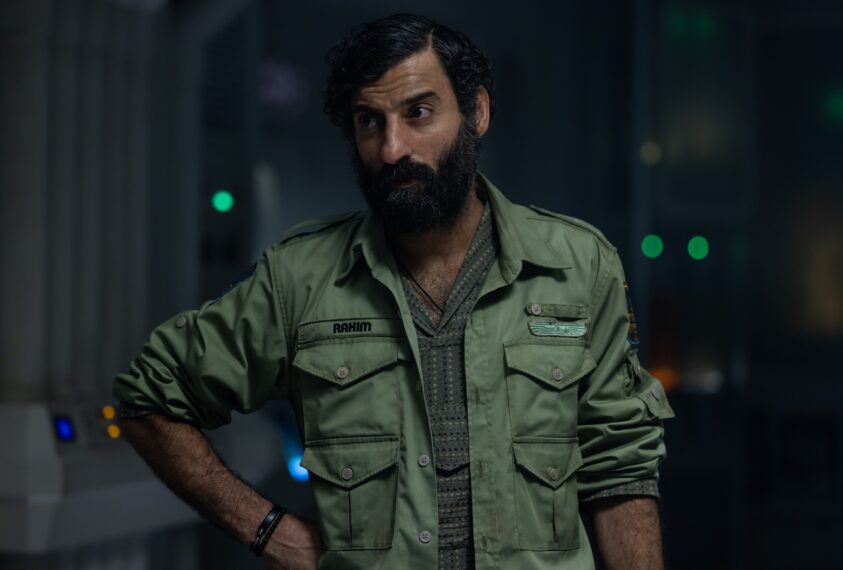
Patrick Brown / FX
The biggest reveal in this episode is that Prodigy had infiltrated Weyland-Yutani’s USCSS Maginot with the intent to sabotage their mission. Does Morrow’s drive to go after Prodigy and Kavalier stem from wanting to give purpose to the time he lost with his daughter?
No, I think he articulates it in the third hour when he says, “I’ve been gone 65 years, this is my life’s work, and if I’ve lost this, then what was the point of those last 65 years?” And clearly, he made some choices. He sealed the door so that [Zaveri] couldn’t get in. I mean, he made these choices that are meaningful if you actually get the ends that justify the means. But if you don’t, then you just have the stuff that you did, and you have nothing to show for it.
This mostly contained episode builds up to an outcome we already knew. How did you approach that as a director and writer of the installment?
Well, you have to invest in all those people and think about how hard that is, to introduce this crew in 51 minutes, distinct and specific individuals whom you have feelings about. And then we’re also introducing and solving a sabotage mystery, and we’re playing out all these creature stories. So, on some level, why I wanted to do it was my mission overall was to try to turn Alien into something new. But if someone was going to get to also do classic Alien, I wanted that to be me. Right? I wanted to go, “I see what you did, Sir Ridley, and I see what you did, Mr. Cameron and Mr. Fincher, and here I am. Here’s my best effort at it.”
What’s interesting is that Morrow is technically in Ripley’s (Sigourney Weaver) shoes in this scenario, but he keeps his cool to the point that the crew questions why he isn’t sweating… until he is.
Then there’s that moment when Clem (Tom Moya) runs up and says something big, and you see for the first time Morrow doesn’t know what to do, everything is out of control. And that moment is everything to me. And Babou played it so brilliantly, but then he takes charge. There’s a moment she obviously can’t recover from that moment for herself, but he does, and that’s why he survives.
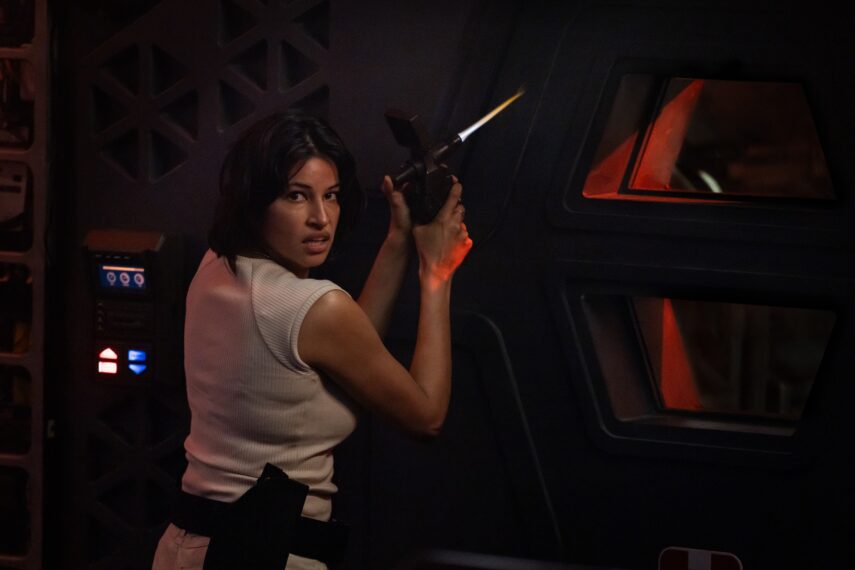
Patrick Brown / FX
In that final sequence aboard the USCSS Maginot, Morrow does begin to sweat. Is that a result of several different factors or merely the encroaching Xenomorph?
It’s a level of complexity. We all face it, right? You’re trying to get dinner on the table, there’s a flood in the bathroom, the cat’s throwing up in the other room. There’s a certain moment where you’re just like, I literally don’t know what to do right now. I don’t know which fire to put out. I don’t know what to do. Obviously, the stakes here are a lot higher, but I do think we all reach a moment where it’s just one thing too many, and he’s literally been carrying this crew; their priorities are weird, he’s got a drug addict for a doctor, it’s the island of misfit toys that’s on this ship. He’s been like, I’m going to get us through, and then at a certain point, he realizes I can get me through, I can’t get anybody else through, especially if they’re not going to help.
Babou Ceesay’s real-life daughter plays Morrow’s daughter in this episode’s flashback, and your son appeared alongside you earlier this season. What was it like incorporating real family members into the series, and how did that lend itself to more authentic moments onscreen?
It’s only fair for him to get his kid onscreen, too. This is how I make things. I make things by hand and to the point of yeah, I record music for the show and my son asked if there was something for him, and I thought, well yeah, I can put him in, but he’s not one of the lost boys, so he could be the young Hermit, but I’m not going to write scenes for it. I was planning to shoot this flashback piece, and so I’d need a father and a mother, and I thought, there’s just going to be day players, and the best way to get any kind of performance out of him is to just get down on the floor and do it with him. And it was really meaningful for me personally, because, of course, that was two years ago. The difference between a 10-year-old and a 12-year-old is… he’s a different kid now, right?
And so for Babou, in that moment, I thought, we’ve all come all this way. He’s moved his family across the earth. Why wouldn’t I give him that lifelong memory and connection with his own child? That’s immortalized on film. I think that too often we look at these shows as some calculated act written by a cash register or something, but this is five years of my life. This is a very personal document for me,
We’ve known the Xenomorph for years, but you’ve introduced several new species into the Alien world with this series. Is there one we should be most terrified of?
Well, I think people are rightly focusing on the eye simply because it clearly has a larger agenda. And as you see, as the season goes on, this may not just be a parasite or a predator. This may be a rival. And I think that’s really interesting.
Alien: Earth, Tuesdays, 8/7c, FX and Hulu





